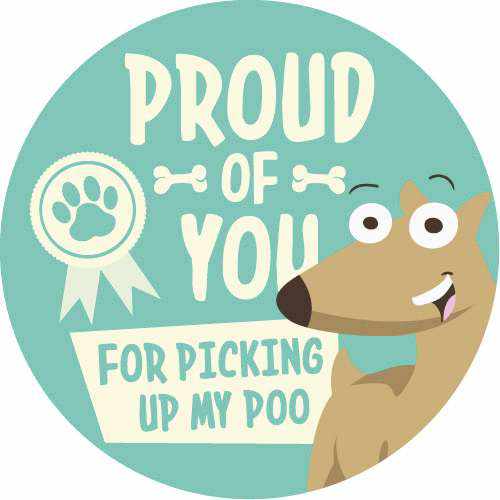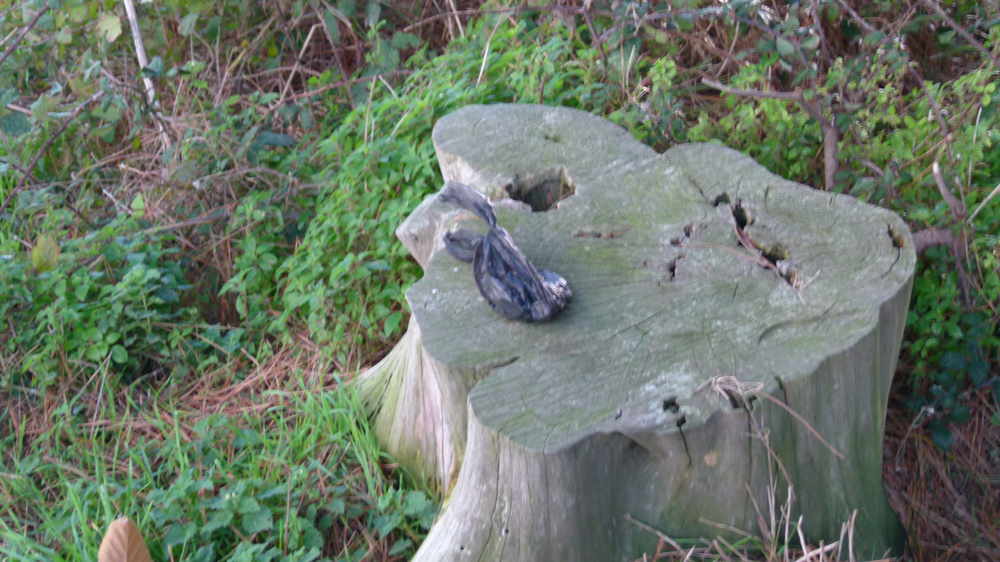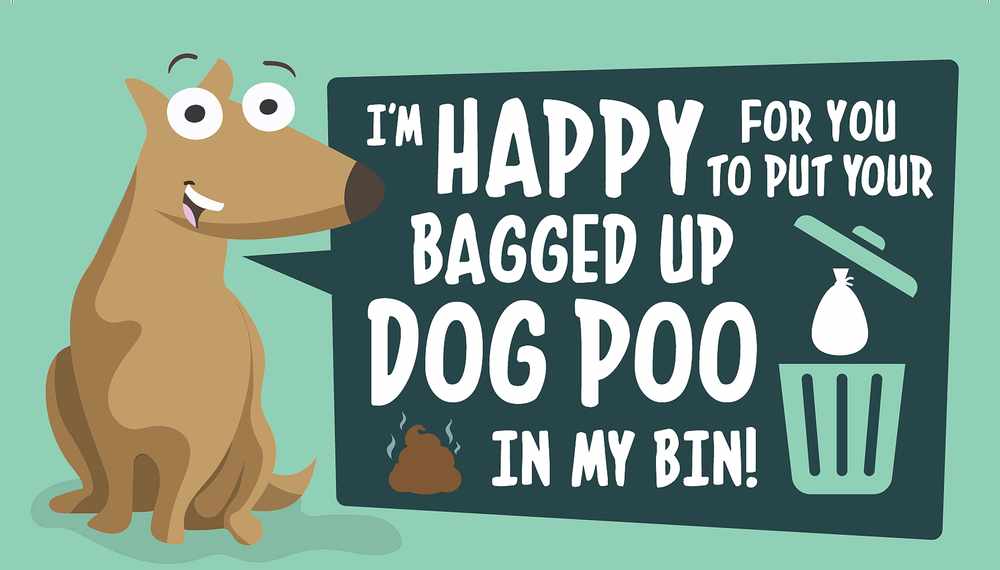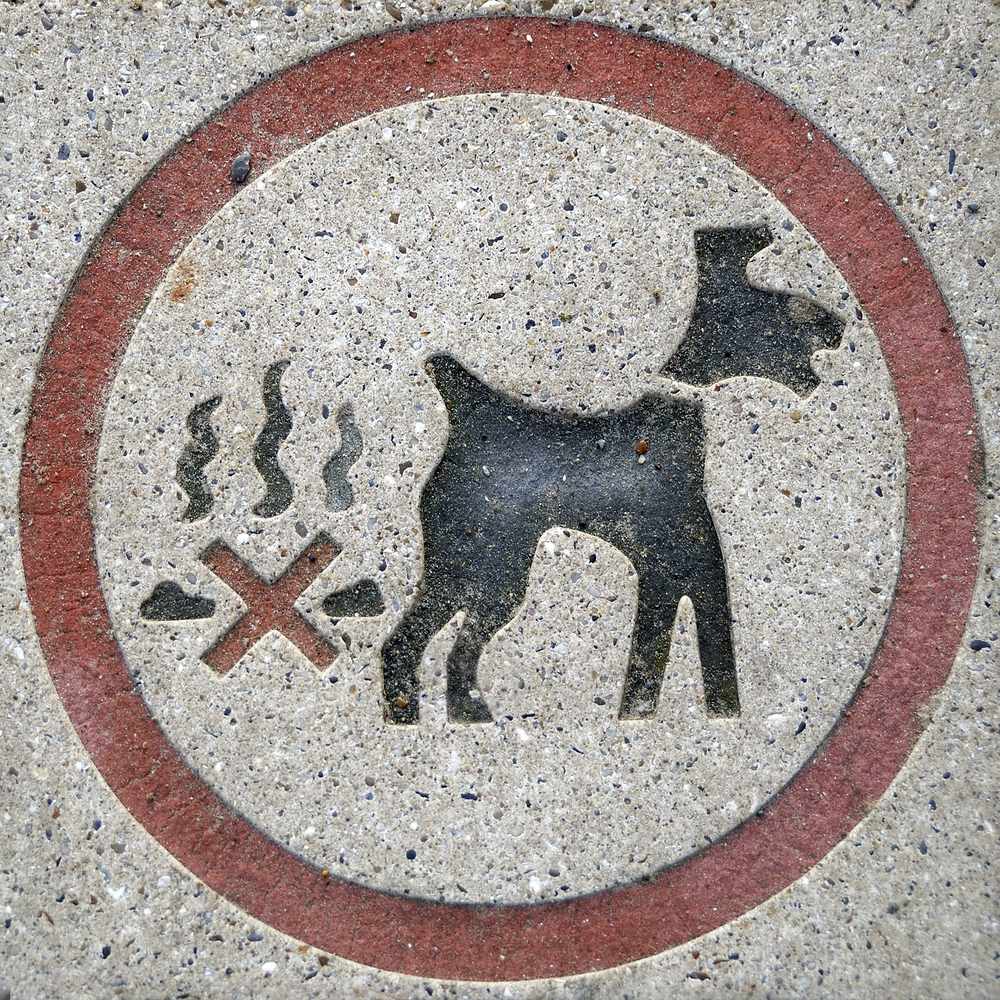During a two-week initiative launched on Wednesday, the Environment Department will draw up a list of the top ten worst affected areas.

It will then focus resources on cleaning those spots and educating dogs walkers in the area to clean up after their pet.
Meanwhile, poo bags and posters will be handed out, and Islanders will be given free stickers to put on their household bins informing dog walkers that they are happy to accept their pet’s bagged faeces.
The campaign, which is called ‘Proud of you for picking up my poo’ and features a smiling dog called Eric, has been launched following repeated complaints about the extent of dog mess both in town and in the countryside.
Dog faeces can be hazardous to the environment as well as human health as it can result in toxocariasis – an infection which can damage eyes and organs, particularly in younger children.
There are more than 7,500 licensed dogs in Jersey, which produce a total of 221 tons of poo each year – the equivalent weight of 30 elephants. If just one dog owner does not pick up after their dog, that is the equivalent of 30 kg of littering each year, according to the Environment Department.


Jane Burns, programme manager at the Eco-Active team at Environment, encouraged Islanders to contact the team via email or social media with specific information to help them identify the worst areas.
She added: ‘Another issue that we receive complaints about is dog owners leaving or forgetting bagged-up poo when they walk their dogs.
‘In response, we have launched a practical initiative – stickers are available for people to put on their bins which tell dog walkers they can dispose of the bags in their bin alongside regular household waste if they need to.
‘We have other resources available too, including poo bags, posters and badges. We hope that by drawing attention to this issue, the public will help persuade people to be responsible, and reduce the amount of dog poo across Jersey.’
Natural environment officer Henry Glynn said that in a recent consultation on access to the countryside, 15 per cent of people who responded said dog mess was their biggest concern.

She added: ‘In the course of my day-to-day work in Jersey’s public nature conservation sites, I’ve been highlighting the issue when I meet dog walkers.
‘The responsible ones, who clear up after their animals, are keen to get recognition for the important role they play in raising concerns and highlighting the problem caused by a small but persistent minority.’
The campaign comes after the JEP revealed earlier this year that talks are under way between Jersey authorities and a UK company promoting the Pooprints scheme – a DNA-matching service already used in the USA, Germany and Israel. Under the scheme, dog owners would add their pet’s DNA to a database using a canine cheek swab to allow any faeces found in public places to be easily traced.
To support the campaign can download free posters from www.gove.je/proudofyou.
To nominate areas log on to the Eco-Active Facebook page or Twitter feed or email Eco-Active at ecoactive@gov.je.
- There are over 7,500 licenced dogs in Jersey
- Each dog produces 79.5 grams of poo a day. That’s 221 metric tons (35,000 stone) per year
- The neospora parasite in dog poo causes abortion in cattle, which costs Jersey dairy £20,000 per year
- The parks and gardens team provide 1,000 emergency dog poo bags every month
- The UK Environmental Protection Agency classifies dog poo as a dangerous pollutant
- Parasites found in dog poo include neospora, hookworms, ringworms, tapeworms, salmonella and roundworm
- Roundworm and neospora eggs remain active in the soil long after dog poo has weathered away
- Roundworm can cause conditions such as stomach upsets, sore throats, asthma, and blindness
- Dog poo is one of the leading sources of E. Coli contamination
- An average size pile of poo contains 1.5 billion E.Coli bacteria[/breakout]






